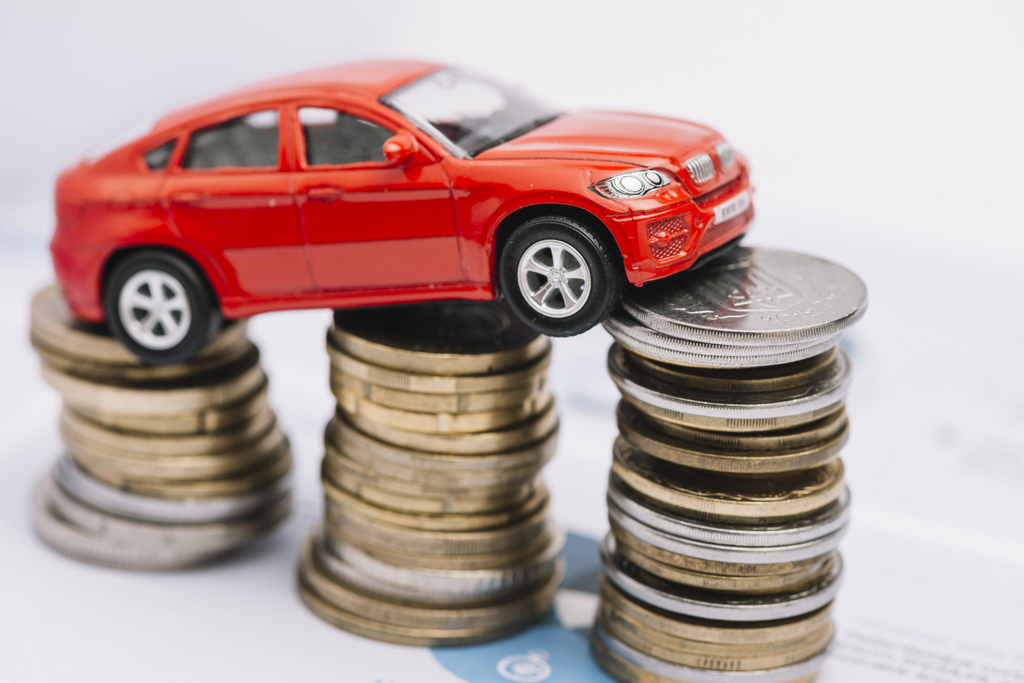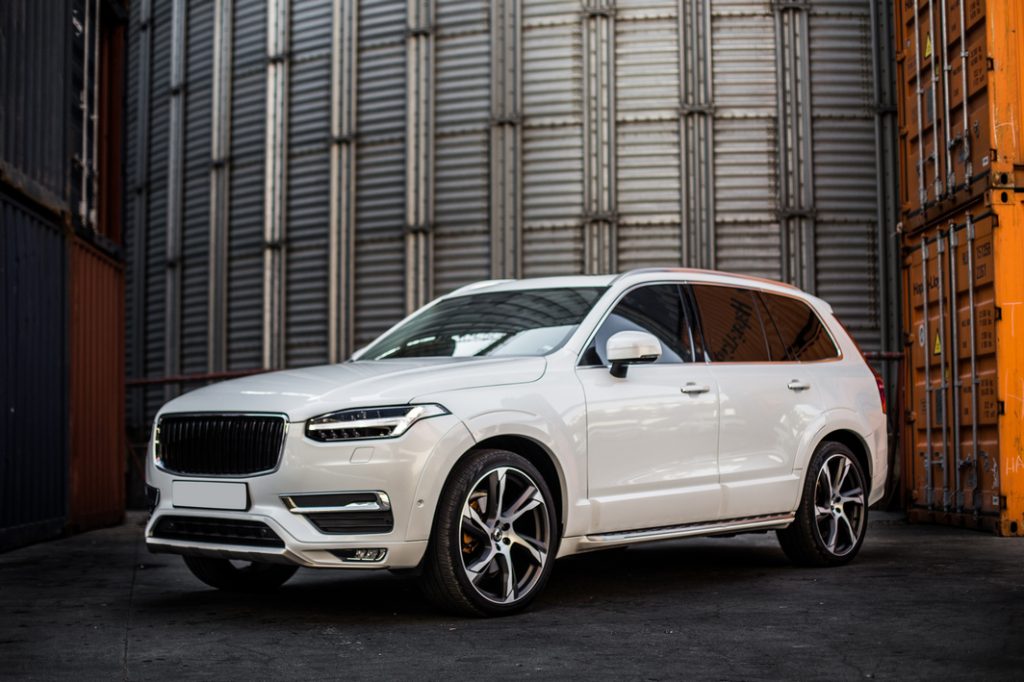Introduction
Owning a car in Dubai isn’t just convenient—it’s a necessity. With long distances, extreme heat, and the need for flexibility, having your own vehicle makes daily life much easier. But with high car prices, many residents turn to car loans in Dubai to finance their purchase.
Finding the right car financing option can be overwhelming. Different banks, interest rates, and hidden fees make it challenging to choose the best deal. Should you finance a new or used car? What are the eligibility requirements? How do you compare loan offers?
In this guide, we break down everything you need to know about car loans in Dubai—loan types, bank offers, required documents, and how to find the best financing option for your needs.
What is Car Financing?
Car financing means borrowing money from a bank or financial institution to buy a car. Instead of paying the full price upfront, you pay small monthly installments over a fixed period (usually between 1 to 5 years). The bank charges interest — this is how they make money.
In Dubai, car financing covers both new and used cars, and you can apply directly through banks, car dealerships, or online platforms.

How Is Car Financing in Dubai?
Car financing in Dubai is a popular and practical way for residents to purchase vehicles without paying the full cost upfront. With the city’s high demand for cars and relatively expensive vehicle prices, most people — both locals and expats — rely on financing options banks and financial institutions offer. These car loans come with flexible terms, competitive rates, and options for both new and used cars.
However, navigating car financing can be challenging for first-time buyers or newcomers to Dubai. Understanding how loans work, the types of financing available, and the eligibility requirements is essential before committing to any loan agreement.
- Choose your car (new or used).
- Apply for a loan with a bank or financing company.
- Submit documents (salary certificate, Emirates ID, etc.).
- If approved, the bank pays the seller.
- You pay a down payment (usually 20% of the car price).
- You repay the bank in monthly installments (with interest).
Car Financing Options in Dubai
When it comes to buying a car in Dubai, there’s no one-size-fits-all approach to financing. Whether you’re looking for a brand-new luxury vehicle or a reliable second-hand car, banks and financial institutions offer a variety of financing options to suit different needs and budgets.
From conventional bank loans with competitive interest rates to Shariah-compliant Islamic financing, buyers can choose the option that aligns best with their financial situation and personal preferences. In this section, we’ll explore the different car financing options available in Dubai, highlighting the key features of each to help you find the most suitable solution for your car purchase.
| Type of Financing | Best For | Key Features |
| New Car Loan | Buyers of brand-new cars | Lower interest rates, higher loan amounts |
| Used Car Loan | Second-hand car buyers | Slightly higher rates, more restrictions on car age |
| Islamic Car Finance | Buyers seeking Sharia-compliant financing | Profit-based instead of interest |
| Salary Transfer Loan | Buyers who work for large employers and bank with lenders | Lower interest if the salary is deposited into lender bank |
Banks Offering Car Loans in Dubai
Dubai’s banking sector offers a wide range of car loan options designed to make vehicle ownership more accessible and affordable. Whether you’re a UAE national or an expat, banks across the city provide financing solutions tailored to different income levels, employment types, and vehicle preferences. Banks like Emirates Islamic Bank, Emirates NBD, Deem Finance and many more provide great opportunities for buyers to afford their dream car in Dubai. You can choose different plans based on the minimum amount of your salary, interest rate, and repayment period.
From conventional loans with fixed or reduced interest rates to Shariah-compliant financing for those who prefer Islamic banking, financial institutes and banks have various plans. There’s no shortage of choices. Each bank has its own set of features, benefits, and eligibility criteria. These are important factors for many to compare offers before making a decision.
In this section, we’ll highlight some of the top banks offering car loans in Dubai in 2025, giving you a clear overview of what each bank provides so you can choose the option that best fits your needs.
| Bank/Financial Institution | Minimum Salary Required (AED) | Flat Interest Rate (Annual) | UAE Nationals | Expats Eligible? |
| Emirates NBD | 5,000 | From 2.49% | ✅ | ✅ |
| Abu Dhabi Islamic Bank (ADIB) | 5,000 | N/A | ✅ | ✅ |
| Dubai Islamic Bank (DIB) | 3,000 | N/A | ✅ | ✅ |
| Mashreq Bank | 5,000 | From 2.85% | ✅ | ✅ |
| HSBC UAE | 10,000 | From 2.49% | ✅ | ✅ |
| First Abu Dhabi Bank (FAB) | 7,000 | From 2.49% | ✅ | ✅ |
| RAKBANK | 5,000 | From 2.85% | ✅ | ✅ |
| Commercial Bank of Dubai (CBD) | 8,000 | From 2.75% | ✅ | ✅ |
| Standard Chartered | 8,000 | From 2.5% | ✅ | ✅ |
| Emirates Islamic | 5,000 | N/A | ✅ | ✅ |
| Noor Bank (Merged with DIB) | 5,000 | N/A | ✅ | ✅ |
| National Bank of Fujairah (NBF) | 5,000 | From 3.0% | ✅ | ✅ |
| Al Hilal Bank | 5,000 | N/A | ✅ | ✅ |
| Abu Dhabi Commercial Bank (ADCB) | 5,000 | From 2.75% | ✅ | ✅ |
| Finance House | 5,000 | From 3.25% | ✅ | ✅ |
Remember that whether you’re a UAE national or an expat, the fixed rate may vary in different banks.

Comparing New vs. Used Car Loans in Dubai
When it comes to car loans in Dubai, one of the most important decisions you’ll face is whether to finance a new or used car. While both options offer their own set of advantages, the loan terms, interest rates, and eligibility requirements can vary significantly depending on the type of car you choose to purchase.
New car loans typically come with more favorable terms, such as lower interest rates and longer repayment periods, but they often require a higher upfront cost. On the other hand, used car loans might offer more affordable monthly payments but could come with slightly higher interest rates and stricter conditions. In the following table, you’ll learn more.
| Factor | New Car Loan | Used Car Loan |
| Interest Rate | Lower (2.10%-2.5%) | Higher (2.5%-3.5%) |
| Loan Amount | Higher | Lower |
| Car Age Limit | No limit | Usually up to 5-8 years old |
| Required Insurance | Comprehensive | Comprehensive or third-party (older cars) |
Required Documents for Car Loan Application in Dubai
Documentation is crucial when applying for a car loan in Dubai. Missing a single document can delay or even block your approval. Here’s the full list, with explanations for each:
| Document | Why It’s Needed |
| Emirates ID | Proof of identity — this applies to both UAE Nationals and Expats. |
| UAE Residence Visa | Required for expats to confirm they legally reside in the UAE. |
| Salary Certificate | Confirms your monthly income and job stability. It must show your job title and date of employment. |
| Bank Statements (Last 3 to 6 Months) | To show your income deposits and spending habits (this proves financial stability). |
| Car Quotation/Invoice | If buying from a dealer, you need a pro forma invoice. For private sales, banks may ask for a valuation. |
| Driving License (UAE) | Proof that you are eligible to drive the vehicle you want to finance. |
| Mortgage or Other Loan Details (if any) | If you have existing loans, banks may need to calculate your DBR (Debt Burden Ratio) — the percentage of income already committed to debt repayments. |
Age Requirements
- Minimum Age: 21 years
- Maximum Age: 65 years (for expats) or 70 years (for UAE Nationals) at the time of loan maturity.
Repayment Period
The repayment period (tenure) defines how long you must clear your loan. In Dubai, banks offer flexible terms:
| Loan Type | Repayment Period |
| New Car Loan | 12 to 60 months |
| Used Car Loan | 12 to 48 months (sometimes up to 60 months for newer used cars) |
Important Points:
- Shorter tenure = Higher monthly installment but lower total interest.
- Longer tenure = Lower monthly installment but higher overall interest.
Legal Rule:
- UAE Central Bank caps car loan tenure at 60 months maximum for individuals.
- The car acts as collateral — if you fail to pay, the bank can seize the vehicle.
Why This Matters:
- Some people looking to finance cheaper second-hand cars (under AED 30,000) may face rejection because the loan amount is too low.
- In such cases, opting for personal loans instead of car loans might be more suitable — but personal loans have higher interest rates.
Factors Affecting Loan Approval & Interest Rates
When banks review your car loan application, they assess multiple factors. Each factor impacts either approval chances or the interest rate you are offered.
| Factor | Impact Explanation |
| Salary | Higher salary = More approval chances + Lower interest rate. Low salary = Higher risk for banks = Higher rates. |
| Employer | If you work for a government entity or a large, reputed company, banks view you as lower risk and may offer better rates. |
| Credit Score | A higher credit score (700+) results in better rates and faster approvals. A low credit score = higher rates of rejection. |
| Car Type & Age | New cars from popular brands (Toyota, Nissan) are lower risk, so they get better rates. Older or luxury cars often come with stricter terms. |
| Down Payment Amount | Paying more upfront (higher down payment) lowers the loan amount, reducing risk for the bank — this may secure a better rate. |
| Debt Burden Ratio (DBR) | If you already have loans (like a mortgage or personal loan), banks check that your total monthly debt payments don’t exceed 50% of your salary. A high DBR reduces approval chances. |
| Nationality & Residency Status | UAE Nationals often get better terms than expats, as they are seen as more stable long-term borrowers. |
| Comprehensive Insurance | It is mandatory for financed cars — but some banks offer tie-ups with insurance companies, bundling financing + insurance for better rates. |
| Salary Transfer | Some banks give lower interest rates if you transfer your salary to them (salary transfer loans). |
| Type of Interest Rate | Flat rate (common in UAE) vs. reducing rate (better for the borrower over time). Flat rates are easier to calculate but may seem cheaper than they actually are. |

FAQs about Car Financing in Dubai
Yes, as long as you meet salary and visa requirements.
Most banks finance cars up to 5-8 years old.
Yes, but early settlement fees (usually 1% of remaining amount) may apply.
Final Tips for Car Buyers
- Compare options from multiple banks. Each has different rates, fees, and rules.
- Check for promotional rates. Some banks offer special deals during Ramadan or shopping festivals.
- Understand the difference between flat and reducing rates. Reducing rates are cheaper in the long run.
- Calculate your total cost. Monthly payments are important, but so is the overall cost of the loan.
- Don’t forget insurance. Comprehensive insurance is often mandatory, and it adds to your monthly expenses.
Conclusion
In conclusion, financing a car in Dubai in 2025 offers buyers many options. No matter if you’re not a resident of Dubai, you have no difference with nationals in some banks. Based on your financial situation, preferences, and cultural considerations, you can choose a bank and get a loan from it.
You just need a job to meet the requirements and repayment methods. Whether you’re looking for a brand-new vehicle with lower interest rates, a budget-friendly used car, or a Shariah-compliant financing plan, understanding the terms, eligibility, and requirements is key to making a smart decision.
Take your time and study all the terms and regulations banks and different institutions have. With so many banks and financial institutions competing to offer attractive loan packages, buyers can compare rates and benefits to find the best deal.
